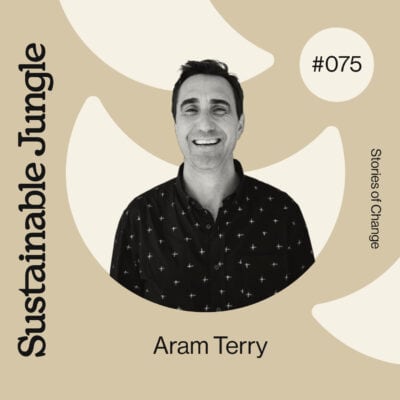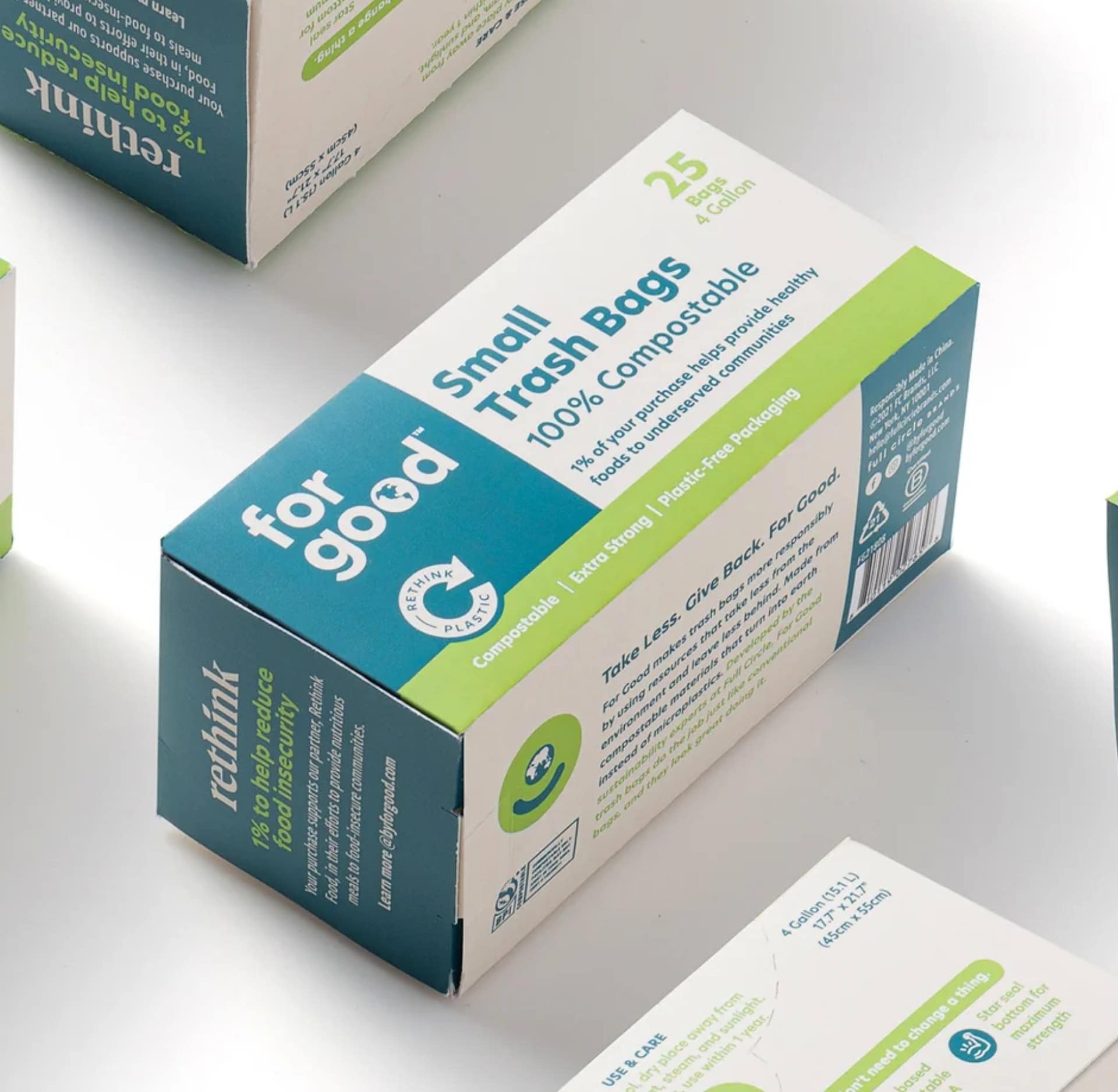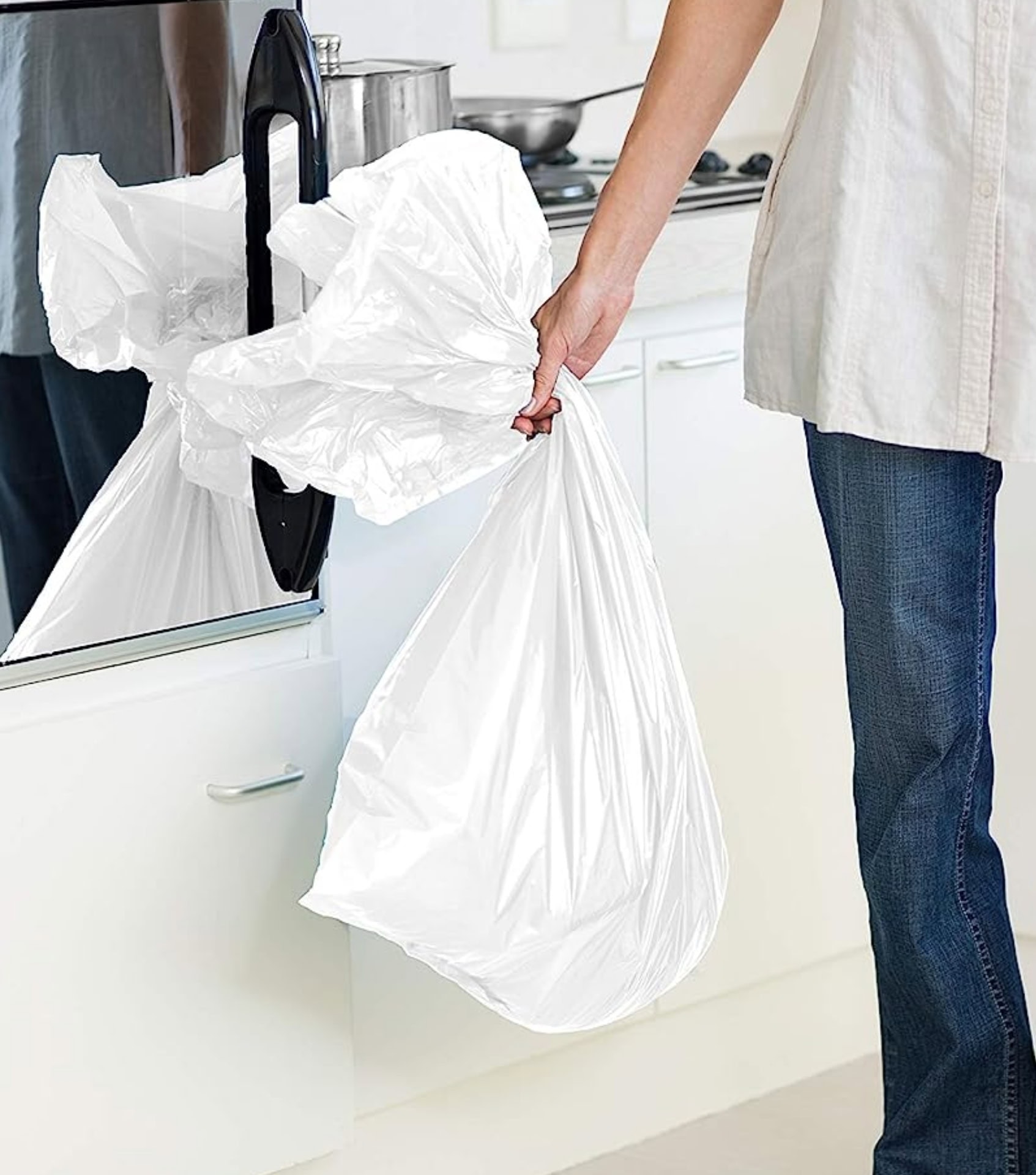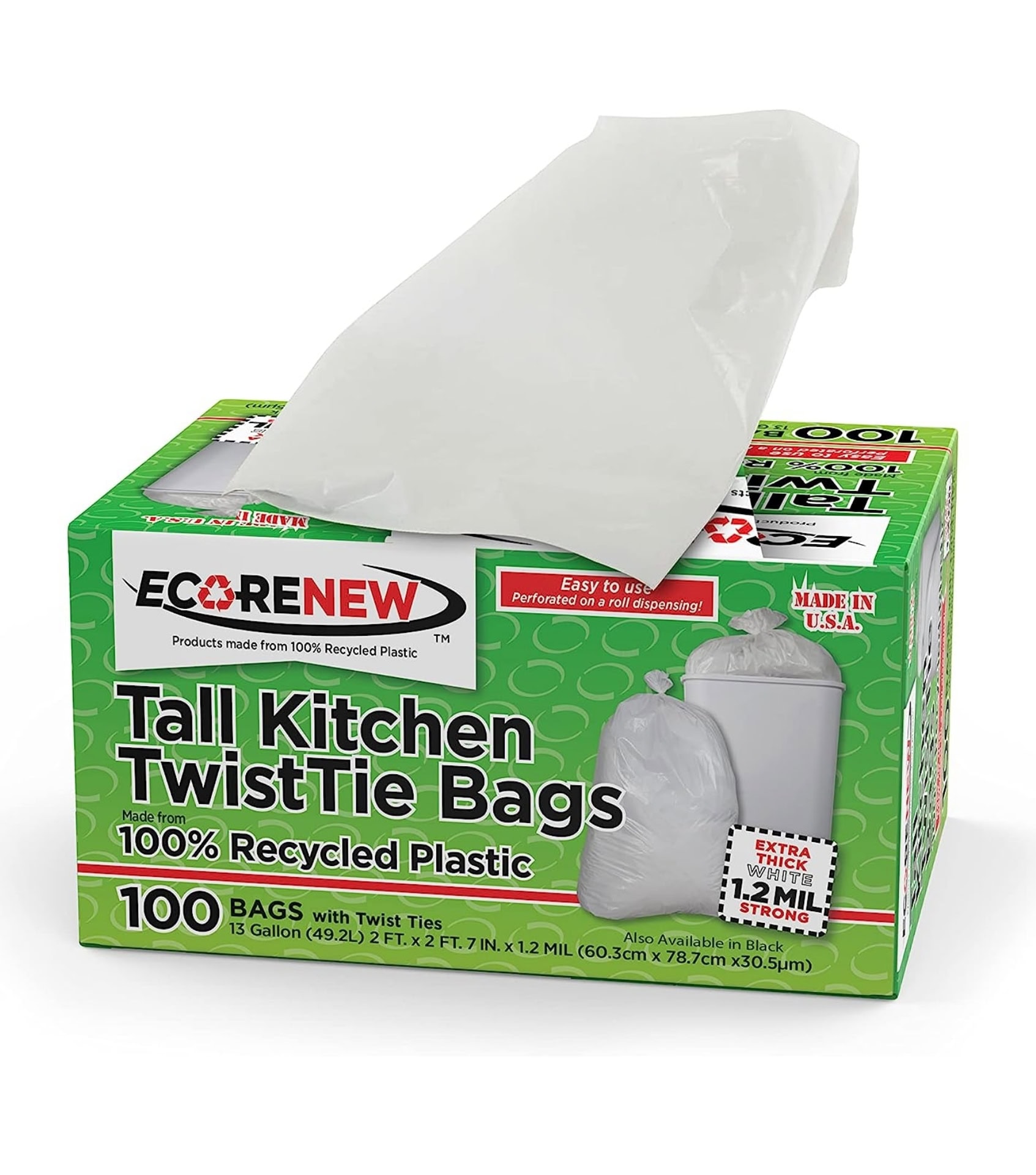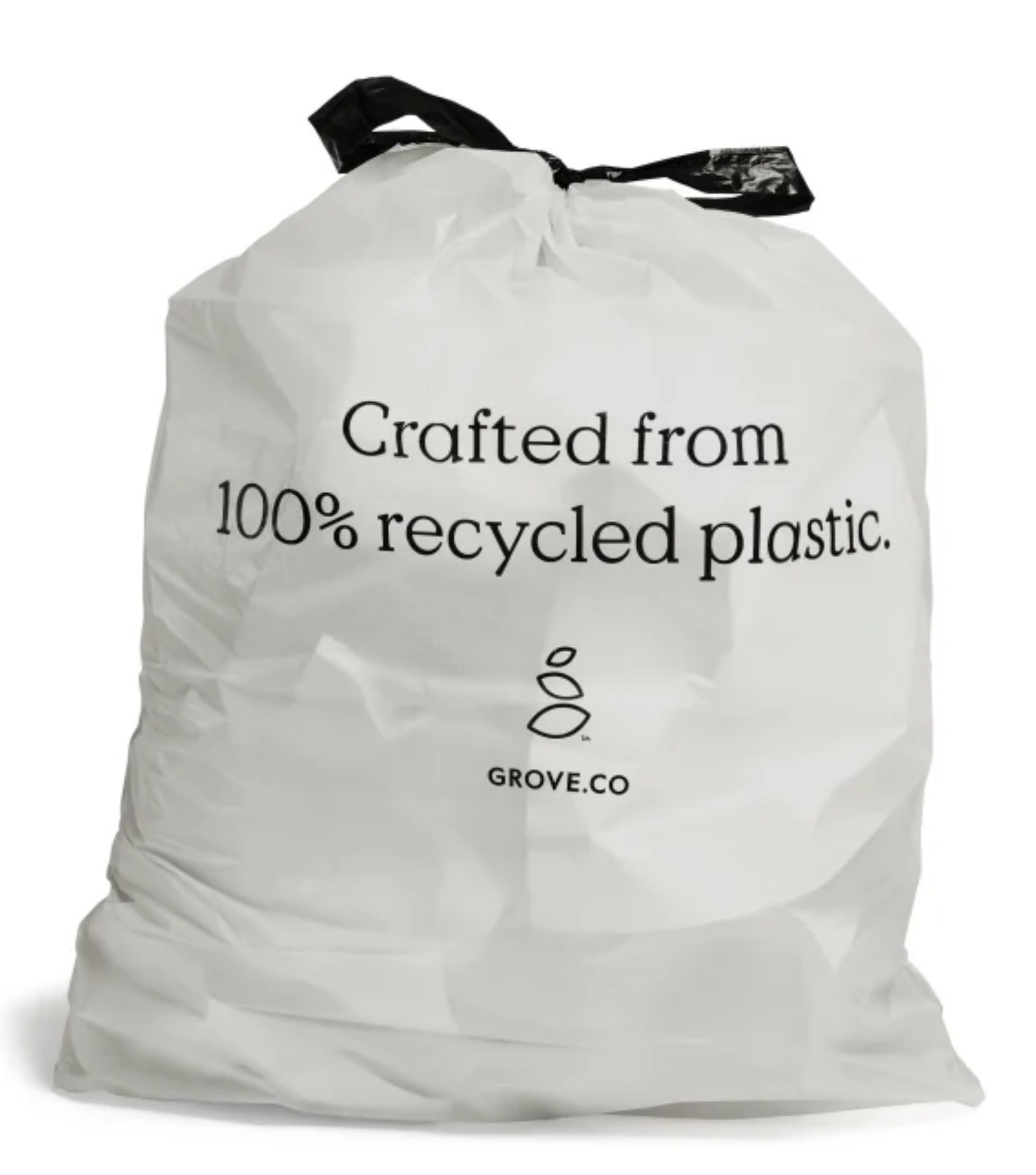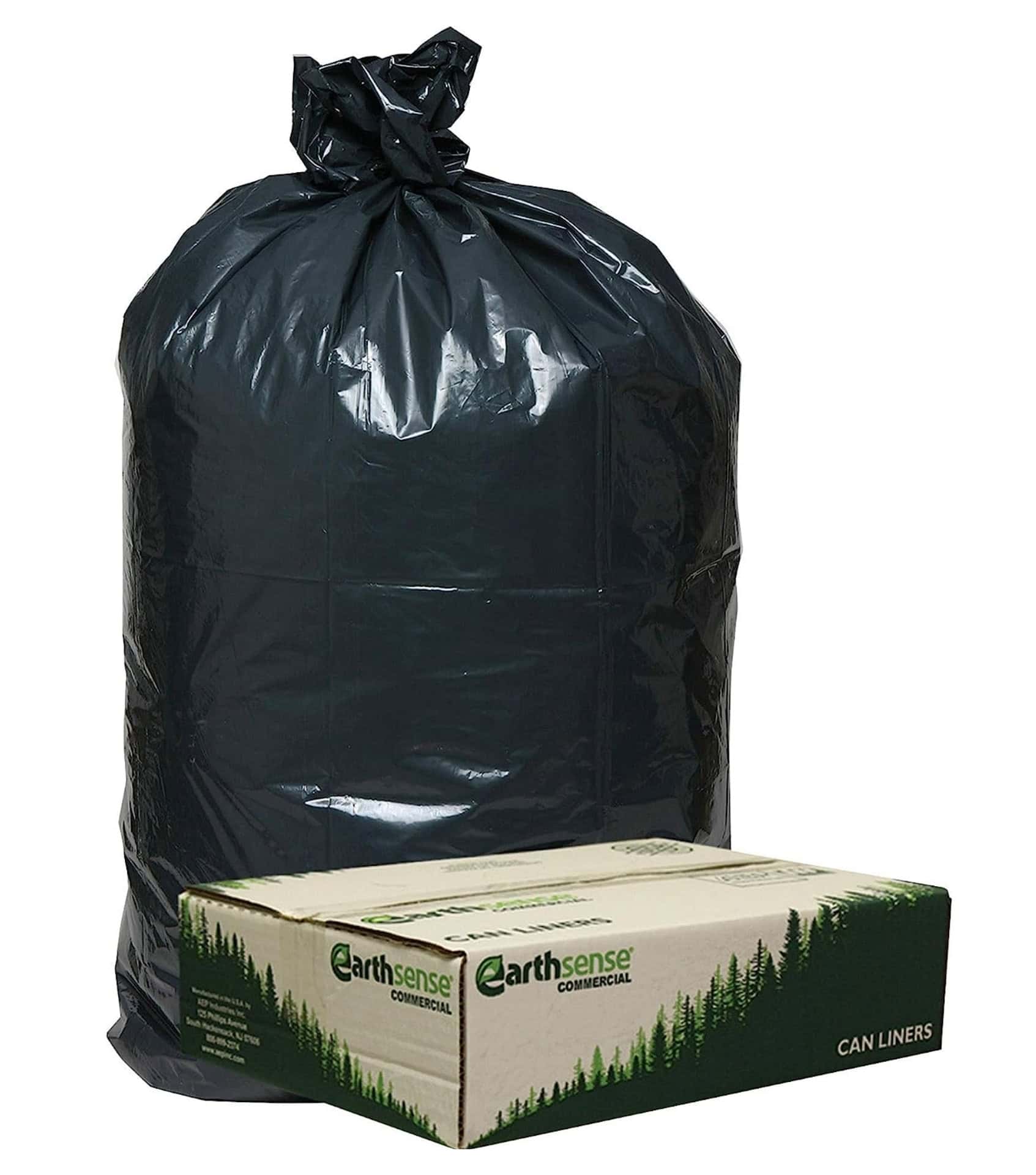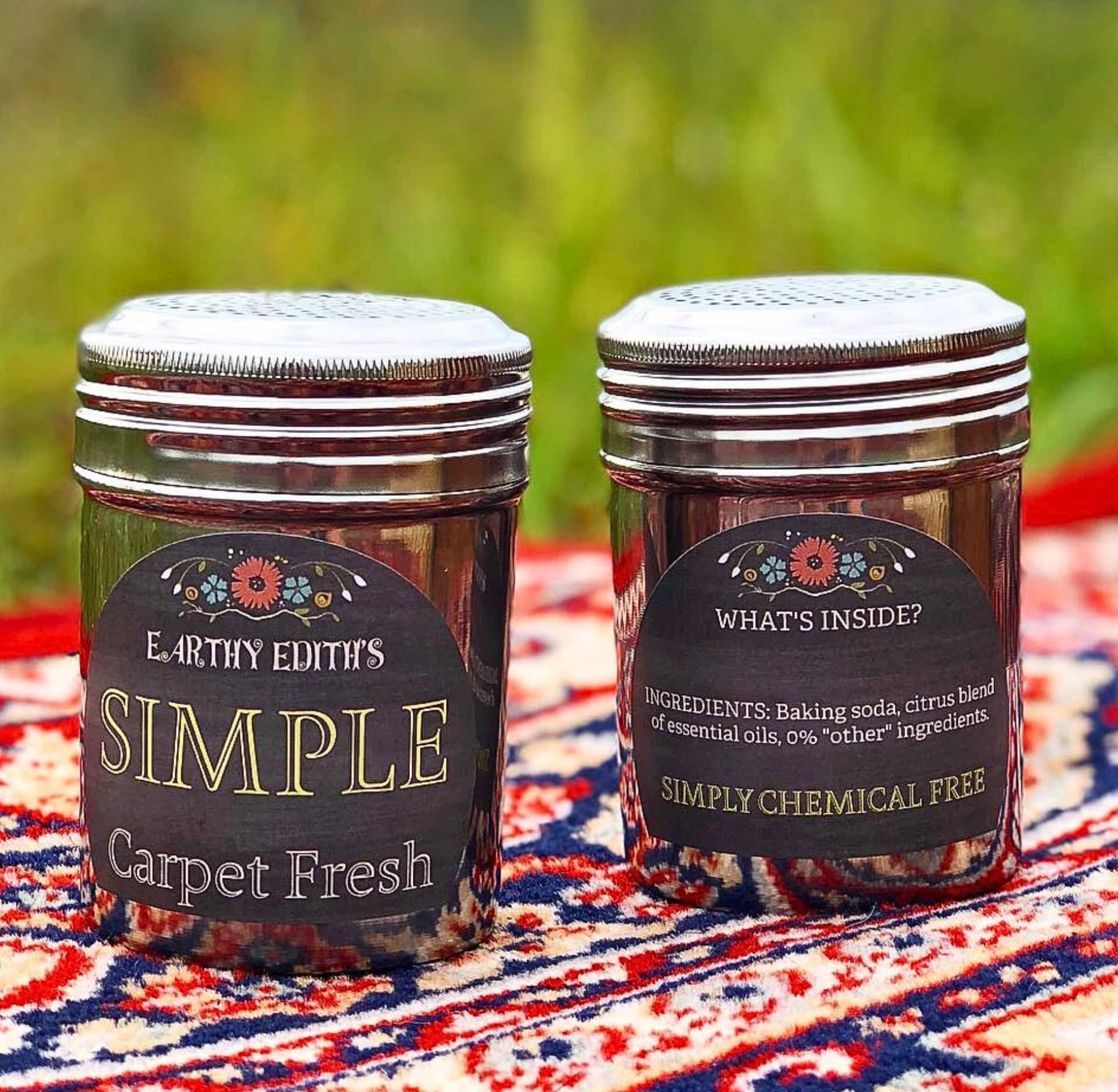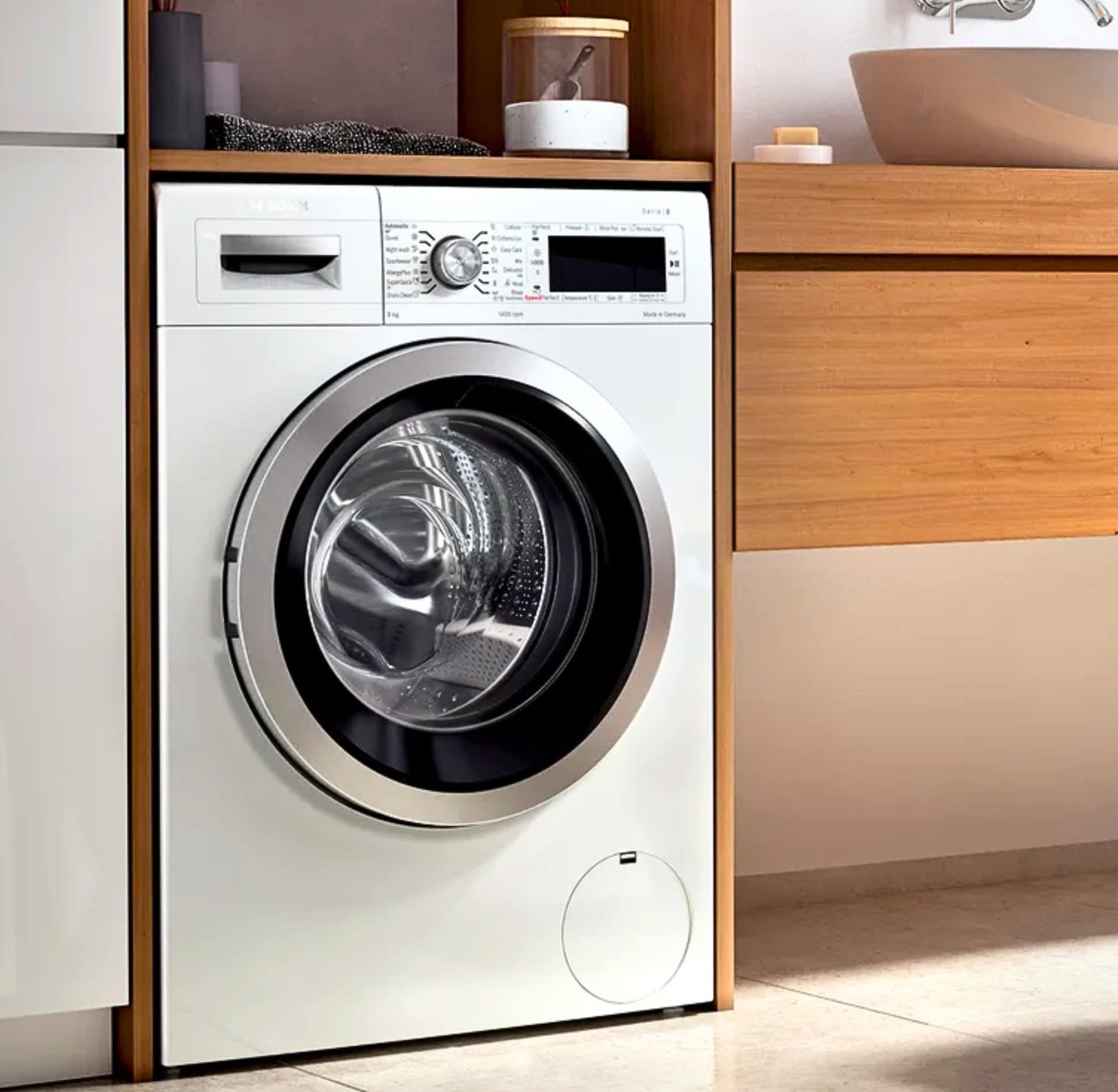We’re here to (trash)talk about one of the world’s most ubiquitous trashy items: garbage bags. But not just any old bags, specifically, recycled trash bags. Because even the most hardcore low-waste living advocates find complete waste reduction to be the most challenging aspect of greenifying one’s home routines.
With enough discarded items already facing the landfill, the plastic trash bag itself is one of the biggest contributors to microplastics, GHGs, and fossil fuel use on our planet.
Sure, we see countless reusable, recyclable, paper, biodegradable, and compostable options, but this means little by way of a real green solution, a lessened carbon footprint, reduced landfill waste, or fewer GHG emissions. That’s because anything organic or bio-based decomposes anaerobically in a landfill (as opposed to aerobically in a composter), which releases methane gas that is much more potent in terms of climate warming potential than CO2.
Recycled garbage bags may not break down any differently than virgin plastic ones, but at least they’ve lived a life or two before the inevitable dumpster-graveyard. They also reduce the need to use petroleum to produce new plastic and prevent the release of methane.
So ‘eco-friendly’ trash bags may still be an oxymoron, but there are at least more sustainable alternatives and that’s exactly what we’ve rounded up in this list for you. And these options are not just made of recycled plastics but also by brands who utilize carbon reduction practices and low-waste packaging.
We’re also unrolling our new Brand Rating System. While obviously use of recycled materials will still be criteria #1 for this list, this system also means we’ll examine the brands across a variety of criteria, like climate action and positive social impact. See our explainer here for all the dirty details.
We independently research all featured brands and we ask them to confirm their claims. In many cases we personally review recommended products. This post contains affiliate links which means we may earn a commission if you buy something. Learn more here.
Recycled Garbage Bags Made of 100% Recycled Materials
Popular Certified B Corp Grove Collaborative offers two types of garbage bags (4 and 13-gallon sizes) that both feature zero virgin plastic. Did we mention their tie top makes taking out the trash super easy?
Beyond their recycled bags with 10% sugarcane plastic, Green Polly recently released a 100% post-consumer recycled content bag, and it comes in low-waste packaging (cardboard).
Index: Environmentally Friendly Garbage Bags
- Eco Renew Jump to brand
- GreenPolly Jump to brand
- Grove Co Jump to brand
- EvolutionBags Jump to brand
- Stout Jump to brand
- Earthsense Jump to brand
- simplehuman Jump to brand
Eco Renew
Price Range: $23
Eco Renew by Enpack offers Tall Kitchen TwistTie Kitchen Bags made from 100% recycled plastic and 30% post-consumer recycled content.
These thick, unscented 13-gallon recycled plastic garbage bags are multipurpose and usable for home, office, kitchen, lawn, commercially or industrially.
They claim they’re made in the USA, but we found at least one reviewer concerned they’re actually made in China, so we’ve reached out to confirm and we’ll circle back to you as soon as we know.
GreenPolly
Price Range: $5–$20
GreenPolly offers some of the first of its kind: trash bags made from 80–90% post-consumer plastic and 10–20% bioplastic made of sugarcane. The brand has also just released its first-ever 100% post-consumer recycled content bags, certified by SCS.
Their bags come with drawstrings and hold 13 gallons, which will fit most sized trash cans.
The bags come packaged in recyclable cardboard and shipped in packaging made from recycled content. GreenPolly has also donated more than 215,000 recycled plastic trash bags to communities in need of waste stream support.
Grove Co
Price Range: $7–$8
Grove Co’s BPA-free trash bags are made from reclaimed plastics already headed to the landfill—zero virgin plastic here. The bags come with an easy tie top and there are two sizes available—4-gallon or 13-gallon. Due to the mixture of recovered materials, color variations of the bags can occur. They they’re all of equal durability.
The bags are manufactured in partnership with WasteZero, a Certified B Corp intent on cutting trash down by 50% in the US by collecting single-use plastic waste to convert it into durable trash bags.
Grove Co is also a Certified B Corp and stocks 150 other sustainable brands’ products, in addition to its own highly rated in-house line of home cleaning supplies.
Shipping is carbon offset through reforestation projects, and all purchases are plastic neutral via rePurpose Global. Grove aims to be 100% plastic free by 2025 and publishes annual impact reports to ensure transparency.
EvolutionBags
Price Range: $27
EvolutionBags make 13-gallon white kitchen bags that are constructed from 70% certified post-consumer recycled LLDPE (linear low-density polyethylene). They have the highest percentage of third-party certified post-consumer recycled materials via a closed loop recycling process that ensures superior quality and minimal virgin plastics.
These garbage bags are EPA compliant, UL ECOLOGO certified, and SCS Global Services Certified as made of recycled materials. They also qualify for LEED building projects and partner with a large crop irrigation company to recycle the plastic tubing from their agricultural water tubes after use, a process that keeps over 200 million pounds of plastic waste from landfills annually.
Made and shipped in the USA with only recyclable materials, the brand also recently joined 1% For the Planet, and have donated almost $10,000 to date to the Chesapeake Bay Foundation.
Stout
Price Range: $30–$140
Stout by Envision’s Total Recycled Content Plastic Trash Bags are made from 100% recycled polymer resins, with at least 30% post-consumer recycled material.
These bags are well know for being some of the most durable. Whether it’s work, home, commercial, or industrial use, they can carry a hefty amount of trash and they’re available in a wide range of brown or black size options: 10, 33 45, 60, and 65 gallons.
Envision is a uniquely socially responsible American company employing an almost entirely sight-impaired staff. They also provide outreach, rehabilitation, education and research for the blind and visually impaired.
Earthsense
Price Range: $15–$89
Earthsense makes clear, white, and black trash bags and trash bin liners. They come in a huge range of sizes and bag types, including extra heavyweight which is up to 2 millimeters thick.
All are Certified Recycled Content by SCS Global Services. Their Clear bags have at least 50% reprocessed resins and at least 30% post-consumer resins, while the black and white bags contain 75% reprocessed resins and at least 10% post-consumer resins.
For those in building and construction, using this brand can help with government bids when recycled content is required and also may qualify for LEED sustainability points.
Earthsense is a brand of Berry Global, who have a transparent sustainability strategy, align themselves with the UN’s SDGs, seek to minimize product and operational impacts, and they publish corporate responsibility reports.
They’re also one of the largest specialist plastic recyclers in the UK through Berry Circular Polymers with ISO 14001 and ISO 9001 accreditation.
simplehuman
Price Range: $20
Choosing green garbage bags is far from simple, unless you just go with simplehuman’s 50% Post-Consumer Recycled Plastic High Performance Trash Liners.
These black kitchen trash bags help keep plastic out of our oceans, carbon out of our atmosphere, and bad smells out of your home with their 50% PCR plastic that is carbon-infused to naturally absorb odors. Theseunscented garbage bags are thick and have a double-seam construction to prevent rips and tears.
The packaging is a simple recycled cardboard box and the bags are easily removable one-by-one from a large roll.
While Japan’s iconic trash can brand hasn’t always been known for its sustainability, today simplehuman is improving their footprint by making high performance products with more recyclable materials and less impact.
Why Choose Green Garbage Bags?
There are so many compostable and biodegradable trash bags being touted as the most eco-friendly options. But are they?
Yes, so long as these bio-based bags are properly disposed of. Bioplastics tend to behave the same as regular plastic, taking a lifetime to completely break down.
They can never be recycled, shouldn’t go to landfills (their organic makeup will release methane gas,) and their only end-of-life outcome is a commercial composting facility—for which the US has just 185 full-scale operations.
While in the compostable vs biodegradable debate, compostable bags remain the winner—the latter being fraught with greenwashing, marketing gimmicks, and zero legal standards—both do more harm in landfills than their plastic counterpart.
What about paper bags?
Between deforestation issues, their quadruple-sized water and energy manufacturing footprint, their heavy weight, and scientific research indicating that in landfills they decompose as slow as plastic, we say leave the trees alone.
Where does that leave our trash?
The trashy truth is that if you plan on throwing your garbage away, recycled garbage bags are ironically thebest trash bags for the environment because they’ve given a second life to already-made plastics, and they won’t release methane like bio-options do in landfills.
Given the average American uses more than 300 bags per year—totalling 100 billion bags and 12 million barrels of crude oil—using existing plastic is better than virgin petroleum.
Of course, if you want to really make your trash bags low-impact, our #1 sustainability tip is simply to use fewer trash bags by following zero waste principles: refuse, reduce waste, reuse, rot (AKA compost), and lastly recycle—in that order.

